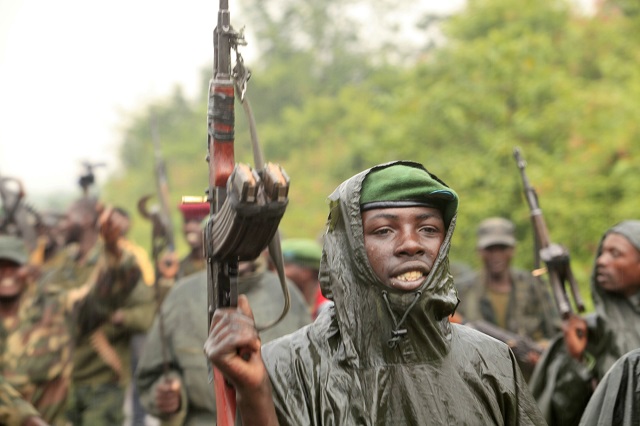
NAIROBI, KENYA | TASS | The conflict in the Democratic Republic of the Congo cannot be resolved by means of sanctions, the Rwandan foreign ministry said in a statement, commenting on the US sanctions against Minister of State James Kabarebe.
The ministry slammed these sanctions as “unjustified and unfounded.” “If sanctions could resolve conflict in eastern Democratic Republic of Congo (DRC), we would have had peace in the region decades ago,” the statement says. “For the last three years, the conflict along Rwanda’s western border has involved hostile forces that have not been sanctioned. These include the Congolese armed forces (FARDC), fighting alongside SAMIDRC troops, Burundian troops, the FDLR genocidal militia, and European mercenaries.”
“The coddling and lack of dissuasive action by the international community on the insecurity and violent conflict instigated by the Congolese government has contributed to the prolonging and intensification of the fighting in eastern DRC,” it reads.
“Rwanda’s only aim is a secure border and an irreversible end to the politics of armed ethnic extremism in our region. This is a matter of national security and that is our only driver. Rwandans have the right to live in peace and without the perpetual threat of insecurity originating from the DRC,” the ministry stressed.
According to the statement, “punitive measures, including sanctions, make no contribution toward long-term security, peace and stability for all the countries of the Great Lakes region.” “Such measures can only be construed as unwarranted external interference in the African-led process, which risks prolonging the resolution of the conflict,” the ministry pointed out, adding that the peacekeeping initiative of the African Union and other regional organizations “is the onlt credible pathway to a negotiated solution.”
DR Congo’s government accused Rwanda of seizing its territory
The government of the Democratic Republic of the Congo (DRC) has accused neighboring Rwanda of seizing part of its territory.
“Rwanda is pursing plans of occupying and plundering our land, committing crimes and gross human rights violations there,” the Actualite news portal quoted the DRC government as saying in a statement following the seizure of the city of Bukavu, the capital of the South Kivu province, by Rwanda-backed rebels. “We will stay firm, vigilant and united in the face of this trial. We will support our armed forces, the president and commander-in-chief.”
The government acknowledged the deterioration of the security situation in Bukavu and called on the city residents not to leave their houses.
Rebels from the March 23 Movement (M23) entered Bukavu late on February 14. According to the Okapi radio stations, after government forces and militia units left the city, it was taken by the rebels without any resistance.
Bukavu’s population exceeds one million. About a million more people live in camps for displaced persons and refugees in its suburbs. At the end of January, M23 rebels captured the city of Goma, the administrative center of the neighboring province of North Kivu.
The conflict in the Democratic Republic of the Congo has been smoldering for decades. After the Rwandan genocide, also known as the genocide against the Tutsi, and the defeat in the civil war in 1993, part of the Rwandan government army, mostly the Hutu, retreated to Zaire, now the Democratic Republic of the Congo, where they came into conflict with the local Tutsi, the Banyamulenge. After the Tutsi came to power in Rwanda, it came in support for the Banyamulenge. Eventually, the Banyamulenge were joined by Congolese separatists and deserters from the Congolese army to form the M23 group in 2012. Rebel groups, composed primarily of the Tutsi, plunged into hostilities in the east of the DRC in January 2021 and by now they have seized several cities and more than 100 villages in the North Kivu province.
****
SOURCE: TASS
 The Independent Uganda: You get the Truth we Pay the Price
The Independent Uganda: You get the Truth we Pay the Price



